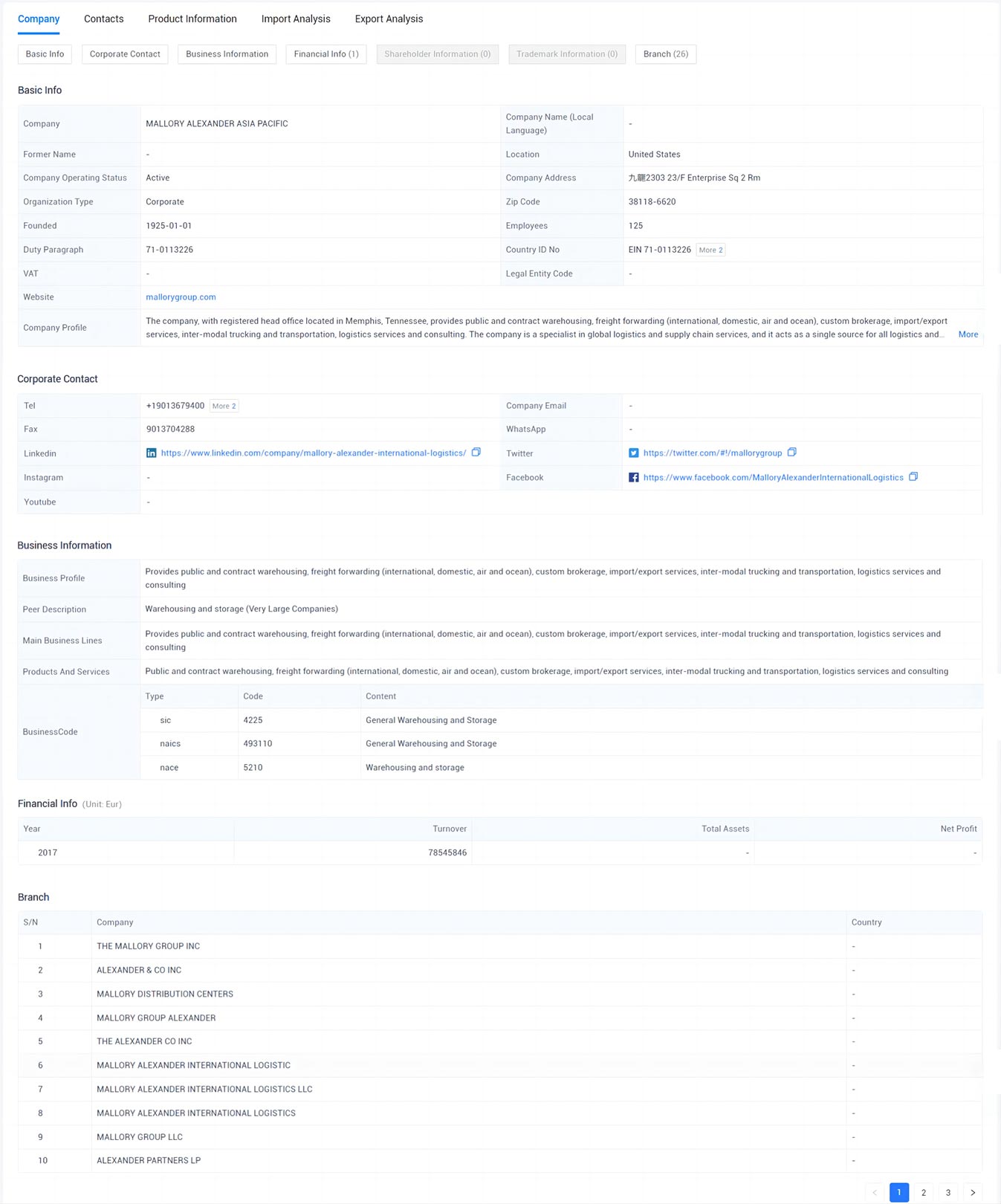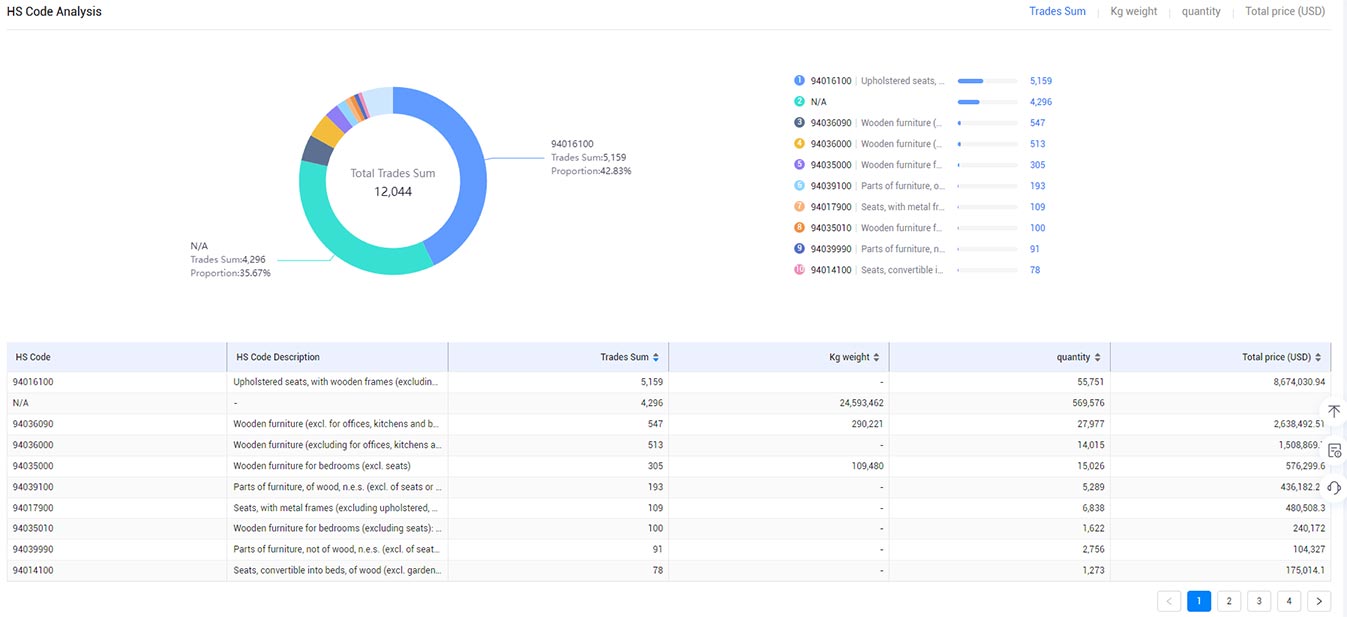 Trade Data Provider
Trade Data Provider
 20-09-2024
20-09-2024
In international trade, gaining a deep understanding of your potential clients' background information is key to ensuring successful business transactions. Utilizing Tendata import and export data for client background checks is an efficient way to achieve this goal. This article explores the importance of conducting background checks in foreign trade and highlights the key aspects you should focus on during this process.

Why Conduct Client Background Checks in Foreign Trade?
1. Reducing Transaction Risks:
Foreign trade involves a complex interplay of cultures and regulations. Conducting background checks helps mitigate potential risks by providing insight into a client's trade history and payment habits, reducing the chances of disputes with unreliable partners. Import and export data play a critical role in analyzing these trade histories effectively.
2. Credit Assessment:
Having a clear understanding of a client's credit status helps avoid risks of delayed payments or bad debts. By leveraging the in-depth analysis provided by Tendata import and export data, you can assess whether a client has the financial capacity to fulfill a contract. The data allows you to evaluate trade volumes, payment timelines, and buyer reliability.
3. Market Research and Positioning:
A background check can reveal a client's behavior in the international market, including their major trading partners, product flows, and market share. This information, derived from import and export data, helps you more accurately target and meet your clients' needs.
4. Building Trust-Based Relationships:
Understanding a client's history and background fosters trust, increasing the likelihood of successful business collaborations. Through background checks using import and export data, you can better understand their values, business goals, and trade patterns, positioning yourself as a reliable partner.
Key Aspects to Focus on During Client Background Checks
1. Compliance Verification:
Ensure the client's trade activities comply with international regulations and national laws to minimize legal risks. This includes checking if the client follows tariff regulations, embargo restrictions, and other legal requirements. By reviewing import and export data, you can assess their adherence to these compliance standards.
2. Financial Evaluation:
Whenever possible, obtain the client's financial data to assess their financial stability and debt repayment capacity. Tendata's import and export data provides key insights into the client's financial performance, allowing you to predict their ability to meet contractual obligations.
3. Customs Clearance Efficiency Analysis:
Analyze the client's customs clearance times to understand their efficiency in import and export processes. Extended clearance times could be a sign of underlying issues, which you can uncover using import and export data from Tendata.
4. Trade Partner Insights:
Learn about the client's major trading partners and their relationships with other companies and countries. This helps you gauge the client's standing and influence in the international market. Import and export data is crucial in identifying who the client does business with and the frequency of these interactions.
5. Tariff Preference Verification:
Confirm if the client benefits from tariff preferences or participates in trade agreements, as this can give insight into their competitive advantage in the international market. By leveraging import and export data, you can identify whether the client has access to any preferential treatment in global trade.
How to Analyze Using Tendata Import and Export Data?
1. Look at The Company Information:>>Contact Tendata for FULL LIST

2. Investigate the Client's Historical Purchase Records with Tendata:
By reviewing their past purchases through import and export data, you can gain insight into their buying patterns and preferences. This allows you to adjust your approach based on their needs and history.

3. Examine Purchase Volume and Trends:
Analyze the client's historical purchase volumes and trends to better understand their purchasing habits and business scale. Using Tendata's import and export data, you can determine whether the client is scaling up or down in specific markets.

4. Assess the Range of Products Purchased by the Client:
Through Tendata's import and export data, explore the types of products the client typically purchases. This can provide valuable insights into whether their main products align with what you offer. Understanding their complete product portfolio allows for targeted marketing of your products and services.
>>Get A FREE DEMO<<

Historical purchase data, including volume and frequency, offers critical clues about the client's purchasing scale and habits. It's also a strong indicator of whether their purchased products are part of their core product line. In many cases, Tendata allows you to see other suppliers working with the same client. This enables you to conduct further analysis on these suppliers, helping you understand the buyer's expectations and requirements for suppliers and products. Such insights, derived from import and export data, allow you to strategically present your advantages during future negotiations.
By deeply mining Tendata import and export data, conducting background checks not only helps reduce risk but also opens up new business opportunities, fostering long-term trust and aiding the smooth progression of foreign trade. When collecting and using data, always comply with relevant regulations and privacy policies, and seek professional legal advice to ensure compliance.
Category
Leave Message for Demo Request or Questions


 T-info
T-info T-discovery
T-discovery

 My
Tendata
My
Tendata Market Analysis
Market Analysis Customer
Development
Customer
Development Competitor
Monitoring
Competitor
Monitoring Customer Relationship
Customer Relationship





































































































































